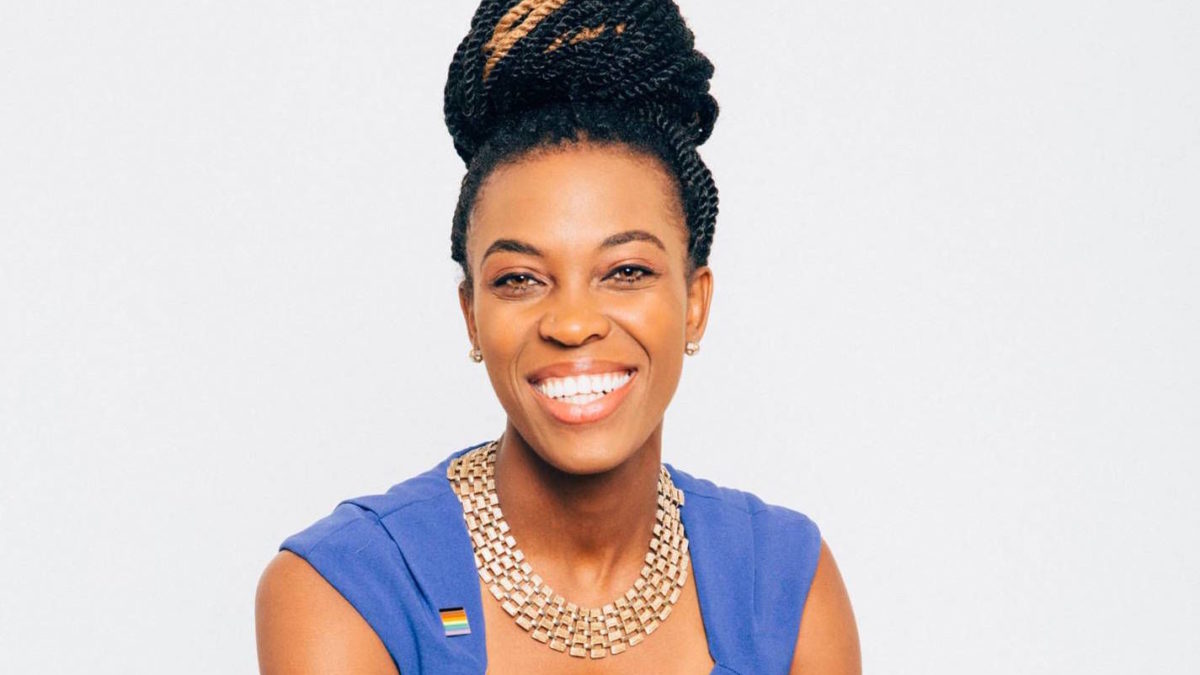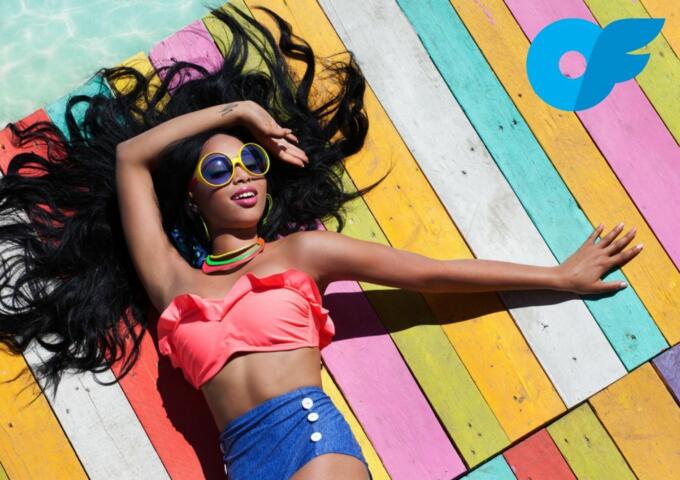It was on billboards in London, the Netherlands and New Zealand, but for Amber Hikes, the most personally significant reference to the new LGBTQ flag was when comedian Lena Waithe wore it to the Met Gala.
Adding black and brown stripes to the rainbow flag may be the accomplishment for which Hikes is most known. But she refers to the symbol, which debuted at Philadelphia City Hall and aims to give more representation to queer people of color, as “a softball effort on my part.”
“People joke that the flag is going to be my legacy, but it was a symbol to mark the substantive work that we’re doing,” she says, “we’re working to acknowledge, disrupt and dismantle the systems of oppression” that face Philadelphians.
It has been a year and nine months since Hikes took the helm of the Office of LGBT Affairs, leaving behind the palm trees of Long Beach, California, to return to the city where she first established herself as leader in the queer community. In that time, she’s been a busy bee.
Among her office’s accomplishments: hosting community conversations with citizens, beefing up anti-discrimination regulations, cultivating a leadership pipeline program, creating an entire month of accessible Pride-related events, training city agencies and police cadets on LGBTQ competency.
Additionally, Hikes’ office is also working on housing and mental health services, improving conditions for the geriatric population, updating tax code, collaborating with police and prisons on gender issues, updating terminology in city paperwork, aiding in expungements for those who need help with unemployment, creating opportunities for intergenerational collaboration, ensuring equal bathroom access, and holding a wildly successful (and first-ever) LGBTQ State of the Union.
Hikes can also brag that the office was featured in a variety of national media, she was named Person of the Year for 2017 by the Philadelphia Gay News, listed among the 100 Most Influential by Philadelphia Magazine and, more recently, in Out Magazine’s 100 Most Influential People list.
__
“People joke that [adding black and brown stripes to the LGBTQ] flag is going to be my legacy, but it was a symbol to mark the substantive work that we’re doing…we’re working to acknowledge, disrupt and dismantle the systems of oppression [that face Philadelphians].”
— Amber Hikes, executive director, Philadelphia Office of LGBT Affairs
__
When she first came into her role as director, “the community was on fire in a lot of ways,” Hikes says. “It was my job to speak to the immediate needs and serious concerns of Gayborhood racism.” She says people were feeling “ignored, gaslighted and angry” and it was up to her office to “come up with a coordinated, targeted approach to address 30 years of documented issues.”
Hikes says racial discrimination has long been a problem in the city’s queer community, much as it is in the mainstream culture. In many ways, the issue came to a head after a 3-year-old video of a Gayborhood bar owner’s racist rant was released in 2016, catalyzing activists into a series of protests, and culminating in a massively attended forum on gayborhood racism held by Philadelphia Commission on Human Relations.
This led to a study conducted by the PCHR, which released a report with recommendations to “reshape the Gayborhood and nonprofits that serve the LGBTQ community.” The commission’s recommendations included implicit bias training for all Gayborhood bar owners and staff, as well as board members, directors, management and staff of the Mazzoni Center and Philadelphia FIGHT.
“It was a huge effort and the first of its kind,” remarks Hikes. “The bar owners wanted their employees to do it – that was encouraging.” But she maintains “there’s plenty to be done,” and that given the turnover in the service industry, it probably needs to be redone.
She clarifies that the queer community “isn’t any more prejudiced than the straight or cis community,” but is simply susceptible to the nationwide “illness” of racism. Despite the fact Black and white citizens each make up 44 percent of Philadelphia’s population, it’s still common to find entirely segregated social and commercial spaces.
For LGBTQ folks, however, there are fewer safe options and, as a result, a relatively diverse group must share space. These problems of Gayborhood racism are also not unique to Philly, Hikes points out. She describes a similar controversy happening in Atlanta, after a gay bar owner was caught using racial slurs.
It seems what makes us unique is our approach to resolving these problems. Ours is one of only four cities with similar LGBT Affairs offices in the entire United States. In addition to the unique solution of implicit bias training, and the first-of-its-kind LGBTQ State of the Union, Hikes’ office has created a leadership pipeline that is more comprehensive than any other before it.
According to Hikes, most nonprofit boards are populated heavily by people who are white, cisgender, male, and who are resourced. She says the new pipeline aims to “change the face of LGBTQ leadership” by focusing on preparing a more diverse group of future leaders “who will look more like Philly’s LGBTQ community.”
The pipeline program is focused on people of color, trans folk, youth and elders: demographics who don’t usually have a seat at table. They undergo a six-month intensive training on the basics of governance, finance, bylaws, fundraising, and brand development.
At the end, 20 individuals will be guaranteed placement on boards and the usual pay-to-play requirement of a financial contribution (that keeps so many working-class folks from serving in leadership) will be waived. In addition, those who complete the training will receive a small stipend for their time.
“This will have an impact next year, not in 20 years,” says Hikes.
TWITTER: @TIMAREE_LEIGH





